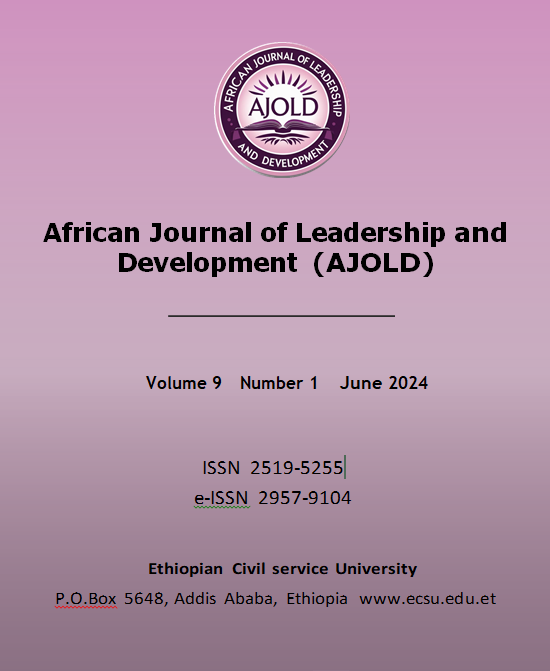The Effect of Employees’ Behavioral Competency Units on Organizational Effectiveness: The Case of Selected Public Service Institutions of Ethiopia
DOI:
https://doi.org/10.63990/2024ajoldvol9iss1pp40-57Keywords:
Staff, Behavioral Competency, Public ServiceAbstract
Organizational effectiveness, a common measure of entities, is noted for being a vital metrics. It is this vital attribute of organizations’ employees’ behavioral competency units that was under close scrutiny here based on data methodologically collected from 394 employees. A cross-sectional survey design and a corresponding set of sound analytic techniques along with a SEM model was employed using version 24 AMOS-supported SPSS. The analysis witnessed a strong interconnectivity among the various dimensions of the competency units on organizational effectiveness as regards the various independent variables. However, the findings of the investigation proved that staffs’ perceived-people-oriented competencies registered only a very low effect on organizational effectiveness nevertheless. This might be attributable to the task-orientated organizational culture that may need further investigation. The qualitative data collected from both individual informants via a focus group discussion brought both positive and negative responses. Consequently, the researcher put forward viable recommeddations to deal with the issue investigated.
Downloads
Published
How to Cite
Issue
Section
License
This work is licensed under a Creative Commons Attribution-NonCommercial 4.0 International License






